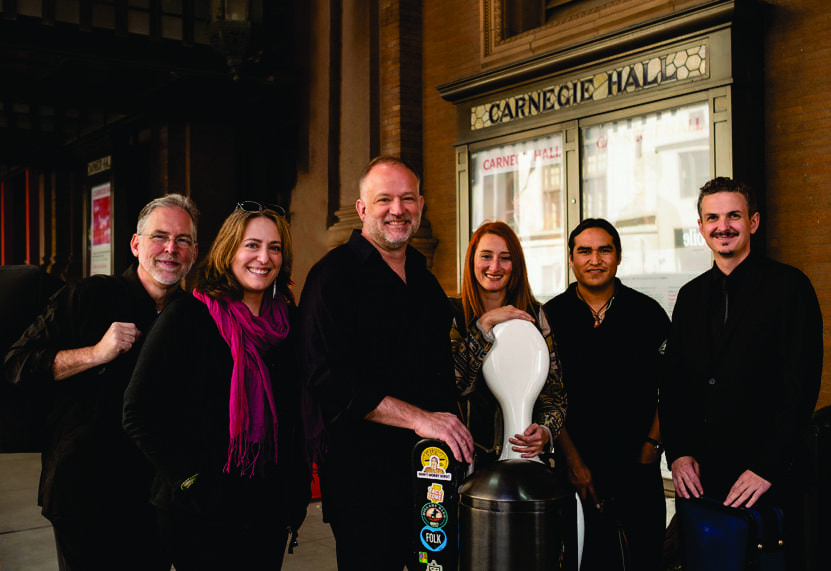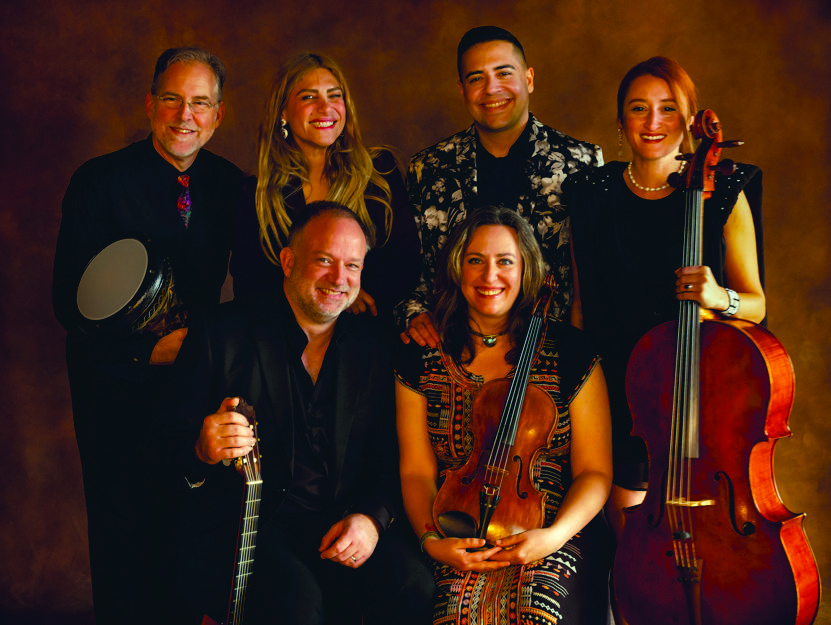TRAILBLAZING: Local ensemble explores how Latino music was formed from a confluence of voices
Nearly all of Beau Bledsoe’s musical adventures have grown out of a lifelong love of the classical guitar, also known as the “Spanish” guitar. So it made sense that Ensemble Ibérica, the group that the Arkansas native established in 2013, should be dedicated to performing “music from Spain and Portugal and other areas of the world connected to the Iberian diaspora,” according to the group’s mission statement.
That’s a lot of territory: not just sunny Iberia but also Central and South America, the Caribbean, and much of North America. Basically anywhere that Latino culture thrives, from São Paolo to San Antonio, La Paz to La Habana. Once Beau began scratching the surface of this music, a whole universe opened itself up to him.

Ensemble Ibérica is by all accounts Kansas City’s first-ever “classical” ensemble devoted exclusively to the performance of Hispanic music and/or Latin American music. (Because Portugal and Brazil are included, the term “Hispanic” falls short.) Beau has engaged a brilliant pool of top-drawer musicians, nearly all of whom trace their heritage to Latin America or Iberia.
As it marks its 10th anniversary, the group looks back on a legacy of a half-dozen CDs and a bevy of performances in The United States and abroad: programs of Argentine tango, Spanish flamenco, Portuguese Fado, Mexican ranchera, Afro-Cuban mambo, Puerto Rican cumbia, and indigenous music from Bolivia, Colombia, Brazil, and many other regions. In May, the ensemble performed to a sold-out audience at Carnegie Hall’s Weill Recital Hall, with Colombian guitarist Nilko Andreas and the AZLO Orchestra.
Music arrived in the New World not only from Europe but also from Africa, the Middle East, and Asia: “ida y vuelta,” Beau said, “with a round-trip ticket.” That is to say, the musical styles “were reflected back to Spain and Portugal, and then came back here again. And they’re still bouncing back and forth.” This symbiotic relationship “was kind of an early version of globalization,” Beau said. “In port cities like Havana, Buenos Aires, or Cadiz, indigenous people, African slaves, and Europeans intermingled … and people were coming up with all of these musical genres.”

While guitar is central to Ensemble Ibérica’s activities, on a typical night you might also hear an oud, a charango (10-string Bolivian lute), Andean flutes, or a Peruvian cajón (box drum). There are standard stringed instruments, too, and singers performing in a range of styles: on texts in Spanish, Portuguese, Ladino, Romani, and even Quechua. Beau is the first to state that if the group performs in a style he feels he cannot address with authority, “usually that concert is going to be led by someone who is an expert.”
For tickets to Ensemble Ibérica’s concert with Nilko Andreas, on November 17th at The 1900 Building, go to ensembleiberica.org.
Featured in the September 30, 2023 issue of The Independent
By Paul Horsley
Photo Credit: Dan White





